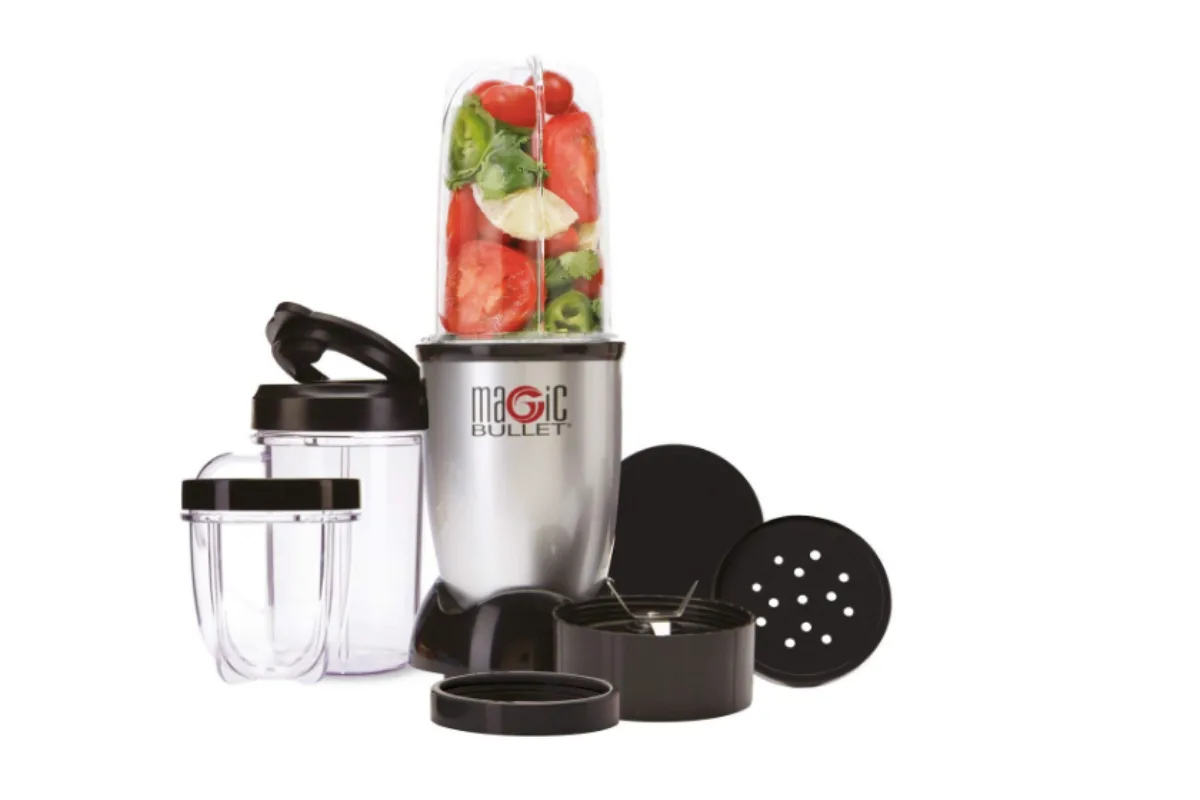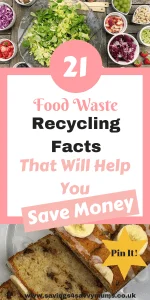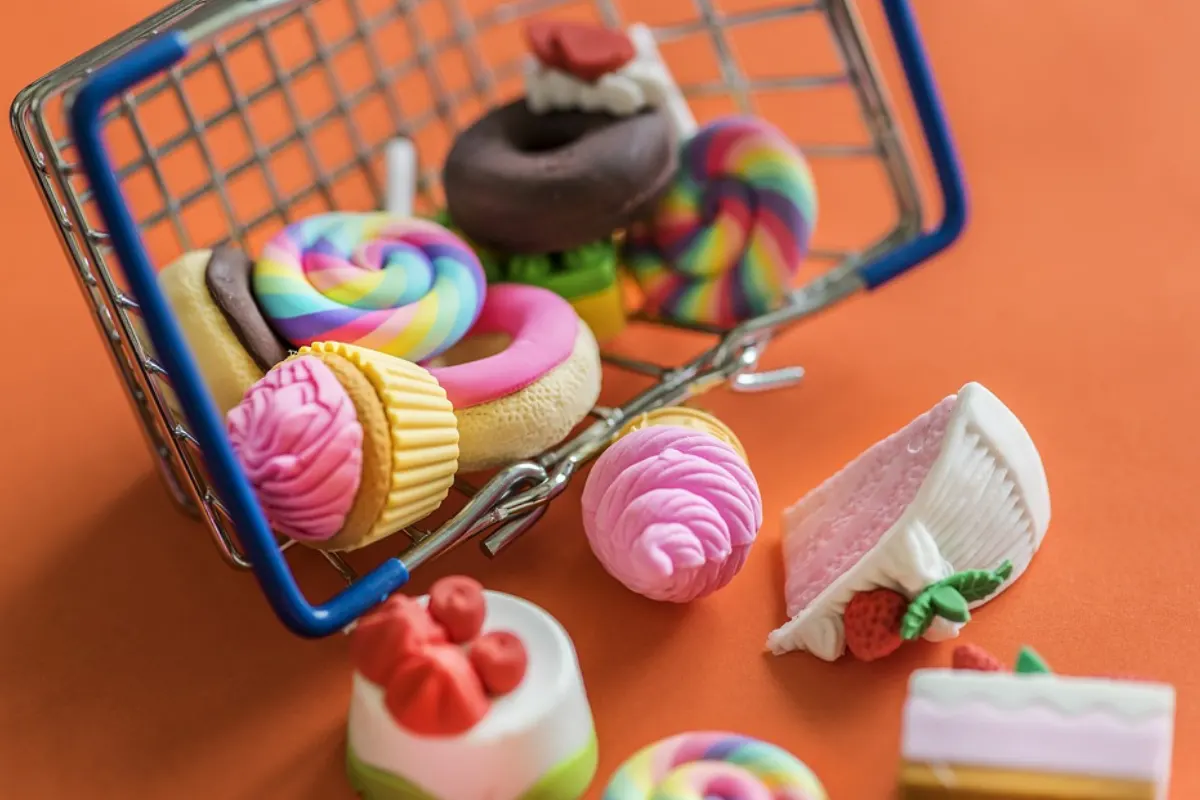Including food waste facts, wrap food waste ideas and food waste disposal tips
We all want to keep our food waste down, especially as on average households in the UK throw an estimated £470 of food each year, most of it still edible.
Think of it this way, that’s an extra £39 a month in your pocket!
It’s certainly easier said than done though. If you have young children that are going through a beige stage then it’s not easy to cook one meal for the whole family.
Food Waste Facts
Have you ever thought about how much food you really throw away? Here’s 5 food waste facts that are going to blow your mind and kick start your recycling journey: (Facts from https://www.recyclingbins.co.uk/recycling-facts/)
1. The UK as a whole throws away around £13 billion pounds of food
2. 1.4 million untouched bananas are thrown away every single day
3. More than a million untouched yogurts are thrown away every day
4. Over 19 million slices of bread get chucked every day
5. 600,000 whole uncooked eggs get binned every day
These are shocking facts but there are loads of ways you can save yourself money while recycling more. Throwing away edible food isn’t just a waste of money. Instead of being recycled it’s sent to landfills where it rots and produces methane gases which in turn is one contributing factor in our climate changing.
All these facts may seem a bit overwhelming but if we all do our part than not only can we all save our families money but we can also help save our planet too!
Reduce Waste While Saving Money
If you’re struggling to save money then why not join our FREE money saving course that takes you step by step through saving money as a family. All simple steps to help you build an emergency fund or save towards that mega holiday.
Join our FREE Money Saving Course here and I can’t wait to see how I can help you!
Here’s 21 food waste recycling facts that will help you save money as a family.
1. Meal planning really reduces waste.
Write down what you’re going to eat as a family, include every meal and make your shopping list from that. If you have no idea how to start meal planning, we talk you through it step by step here.
Remember to check your cupboards, freezer and fridge before you write your list. Try and incorporate one meal that you can make from what you already have a week.
2. Storing our food right can help keep it fresh for longer.
Many of us are unsure where to put our meats in the fridge or which fruit and vegetables are okay in the cupboard.
Premature ripening is a big reason why most of us throw away perfectly good food.
Did you know that garlic, potatoes, bananas and onions don’t need to be kept in the fridge? They love being at room temperature.
Foods like tomatoes, peaches and bananas produce gases that can lead to other food ripening more quickly. Try to keep them separate to reduce waste.
3. Use what you have
In our parents day, this was called preserving.
Before dumping your food ask yourself if you can turn it into something else?
Could you dry it out? Apples make great crisps! Could it be pickled or canned to spare it from the bin? Freeze everything. As long as you use it within three months you’ve not only saved it from a land fill but you’ve also saved yourself money. It’s a win win!
Preserving is a great fun activity to do with the kids! Why not turn carrots into pickle or your ripe bananas into a cake?
4. Buy wonky
We’re all slowly catching up with the idea of buying wonky vegetables. Regardless of its look, all vegetables and fruit hold nutritious value.
Buying imperfect produce is not only cheaper but saves on waste too.
5. Keep your fridge as empty as possible
If you shop weekly already then you probably see an empty fridge by the end of the week anyway. Shopping this way not only means that you have less waste it also means that the food you do put in is being refrigerated probably.
If you do need to pack it in, have a system. Keep anything that has a short date near the front so you remember to use it. We use the first in, first out method.
So when you buy something with a short date or a couple of the same item, make sure the shorter date is at the front so you can grab it easily. This means that older food gets eaten first and not wasted.
6. Use your leftovers
Having leftovers is one thing but actually using them in something else.
Once called, put your leftovers into an airtight container and label with the date it went in.
When you come to meal plan, try and have one day that week using a leftover meal from the fridge or freezer. Not only does it save you money but it saves the bin too!
7. Eat the skin
Many of us remove the skin on meats, fruit and vegetables before we cook with it. There’s really no need.
Just chop the vegetables and chuck them into the pan, especially if you’re cooking a stew or a spaghetti bolognese.
If the kids want the skin off their fruit, fine, chuck the skin with some frozen fruit into a smoothie.
Many outer layers of produce offer us a huge amount of nutrients and antioxidants.
8. Eat the whole egg
Many recipes call for one or the other. Using half in one recipe and half in another can save on waste. You could even use the yolk as a face mask!
9. Save the seeds
A lot of us deseed fruit or vegetables and throw them away. Eating the seeds from pumpkins, for example, can give you and the family a boost in magnesium.
Instead of chucking them in the bin, wash then dry them and put a little olive oil and salt into an oven pan and roast them. This works well with butternut squash or acorns as well.
10. Everything can be blended
Kale stems? Peels? Ends? You name it you can add it. All these make a delicious shake for the family. Add a tiny bit of water if needed to loosen it up and it’s ready. No waste and a colourful snack full of goodness.
11. Make your own stock
If you have a leftover carcass from Sunday lunch then use it to make your own homemade stock. We shimmer ours in a huge pan and break off any loose bones. The smell is incredible. You can then use it for whatever you need.
We also use our carcass for soups. Have a look here at our huge list of turkey leftover recipes including turkey carcass soup. Most of these would work with chicken too.
12. Add peels to water
Bored of the same taste? Then shake it up with your peels. Citrus fruits work the best and really give your water a tang.
13. Keep serving sizes in check
Serving small not only helps your waistline but also helps the environment too. Anything leftover can be kept.
14. Your freezer is your friend
Everything can be frozen. Milk, leftover meals, bread, you name it. Just remember to label it and use it.
Many us of freeze food and then forget to use it within three months so it gets chucked away. Remember to check your freezer once a week before you go shopping and try to incorporate one freezer meal.
15. Know your dates
Sell by is for stores a reminds them when to take a product off the shelf. Best by is the suggested date that it’s eaten by.
Common sense is key here. We have a post about what to look out for when it comes to food dates here.
16. Compost
This is the best way to reuse anything that you need to throw away. Composting turns food waste into food for plants.
If you don’t have room for a compost patch, then most councils offer a food waste collection service. They give you a little box to fill with compostable caddy liners that means you can recycle food waste.
17. Pack a lunch
Have loads of leftovers in the fridge? The why not take them for lunch? Not only will it save you money but also saves your carbon footprint.
We have a huge list of budget lunch ideas here.
18. Food pool
Food pooling means sharing your food with your neighbours. This not only reduces waste but gives you the feel-good feeling as well.
Here’s more on food pooling and how it works as a family.
19. Cook from scratch
Cooking from scratch means that you can chuck anything and everything in. Got a pepper going off? Chuck it in. Have beans that need using? Then use them.
Go crazy and be inventive. Use up whatever might go to waste.
Here’s our list of budget meal plans that can give you and your family some meal inspiration.
20. Treat yourself
Most fruit and vegetables can be used on your body.
Think cucumbers, avocado, and lemons. Sit down and relax for 5 minutes with a natural face mask.
21. Think outside the box
Reducing your waste means you can save money too.
Making small changes as a family can help make positive changes to reducing our waste.
None of these tips should cost you money. Challenge yourself and your kids to use up anything you are about to bin. It’s fun!
Competition Time!

If you would like to keep your food budget and your waste bill down then come join our competition! You could win an 11 piece Nutribullet Magic blender, mixer and food processor with all it’s accessories (picture above).
All you need to do is comment on this blog post saying how you try to reduce your food waste as a family. Do you meal plan? Freeze leftovers? Whatever you do tell us to win!
Remember to like our Facebook page and follow us on Twitter for extra entries.
Related Posts:
- 51 of the Best Frugal Living Tips: This is How to Become a Frugal Family
- Here’s How To Feed a Family for Just £18
- Sorting Your Home Finances When You Are Living With Less
Love Food Hate Waste
If money is a factor and you think that recycling will impact your budget then have a look at apps like Checkout Smart*and Shopmium*, which all allow you to get free food.
Check the offers on the apps first, purchase the item, upload your receipt and get your money back. It’s a win win as long as you use the item and recycle or reuse anything you don’t eat.
Using a free app like Plum* can really help keep your finances in order. It can help you track your in goings* and outgoings and start to but a bit away when you can afford it.
Meal Plan every week before you shop. You can make your own weekly meal plan or download my meal plans and shopping lists for free from the Resource Vault. These will help you save money which hopefully means you can afford to recycle.
You can also switch energy suppliers. Using a switching service like Swiftcraft* can really help you shave some money off your energy bill.
If you do your shopping online then you could be getting cash back. Have a look at:
Swagbucks* is another great site you can earn. While you shop online you can watch entertaining videos, search the web, answer surveys and find great deals that earn your points. These get turned into gift cards to your favorite retailers like Amazon and M&S or you can get the cash via Paypal (with fees.)*
Right now Swagbucks* are offer an extra 1,500 SB (£10) ‘swag up’ bonus promotion available for all new members. Sign up through this link*, then shop with any of their stores with a minimum spend of £25 and receive your normal cashback and your £10 bonus!
Haggle on everything. If you haven’t checked your subscriptions in the last six months then it’s time to do it!
Don’t settle for the first price.
Start by phoning up all your existing suppliers for a better deal. Use a compassion site like GoCompare* to check you’re on the right deal.
For TV subscriptions, set aside an hour and check for the latest deals. If you’ve been with Sky TV* for a while then you may be able to join SKY VIP. You can get money off your existing package and offers on new ones. It’s true that you still have to haggle though so put aside a good hour and decide on the line you will cross ie canceling or not.
I really hope that some of these food waste tips have helped you and have encouraged you to save money while recycling more.
Laura x
If you enjoyed this post and would like some more money saving ideas, then head over to the saving my family money section here on Savings 4 Savvy Mums where you’ll find over 50 money saving tips to help you save your family more. There’s enough tips to help you save over £300 a month! You could also pop over and follow my family saving Pinterest boards for lots more ideas on how to stop spending and save more; Money Saving Tips for Families and Managing Money for Families.
Love this post? Then why not save it to Pinterest so you can easily find it later.

If a link has an * by it, then this means it is an affiliate link and helps S4SM stay free for all. If you use the link, it may mean that we receive a very small payment. It will not cost you anymore that it would normally.
You shouldn’t notice any difference and the link will never negatively impact the product. The items we write about are NEVER dictated by these links. We aim to look at all products on the market. If it isn’t possible to get an affiliate link, then the link, or product is still included in the same way, just with a non-paying link.



Claire Fawkner
Thursday 31st of January 2019
We plan ahead - it saves money and avoids unwanted waste
Heather
Thursday 31st of January 2019
I always plan the shop out in advance and don't buy anything that isn't on my list
Daniel Austin
Thursday 31st of January 2019
Freeze milk in an ice cube tray and then use one cube per cup of tea!
Diana
Thursday 31st of January 2019
We use leftovers next day :)
sharon martin
Thursday 31st of January 2019
we actually do both we meal plan as much as possible and freeze any leftovers or eat them for lunch the next day depending on what it is.